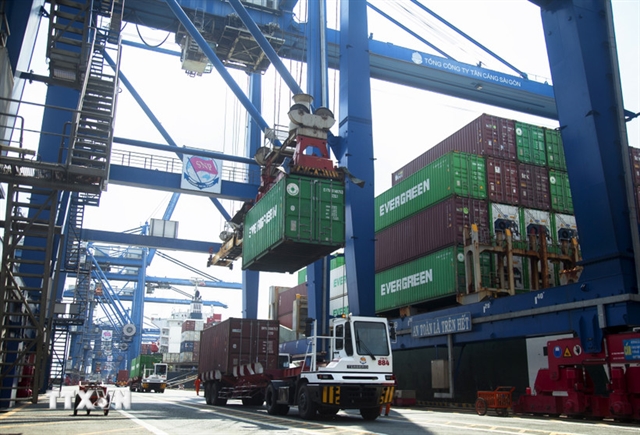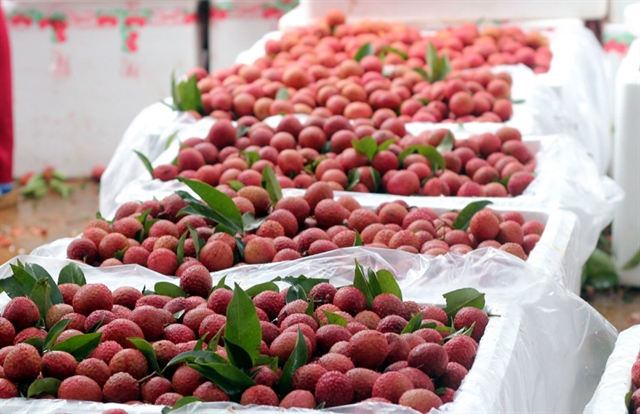 Economy
Economy


|
| Lychee from the northern province of Bắc Giang. — VNA/VNS Photo |
HÀ NỘI — Despite abundant yields and strong global demand, Việt Nam’s key tropical fruits - banana, pineapple, passion fruit and coconut - continue to struggle for a firm foothold in international markets.
The underlying issues include fragmented value chains, inconsistent quality control and the absence of a unified long-term development strategy.
On 18 July, a national forum titled 'Solutions to Boost Competitiveness and Export of High-Potential Fruits: Passion Fruit, Banana, Pineapple, and Coconut' brought together policymakers, industry leaders, and researchers to examine persistent challenges in production, distribution and export and to propose sustainable solutions for the country’s tropical fruit sector.
Nguyễn Như Cường, Deputy Director of the Department of Science and Technology under the Ministry of Agriculture and Rural Development, noted that fruit cultivation is becoming a driving force in Việt Nam’s agricultural growth, improving farmer livelihoods and contributing significantly to export revenue. As of 2024, the national fruit-growing area reached 1.28 million hectares.
Ngô Quốc Tuấn, Deputy Director of the Post-Entry Plant Quarantine Centre II, warned that Việt Nam’s fruit exports are facing increasingly strict technical barriers, particularly in quarantine regulations, food safety standards and traceability. In some cases, violations have led to the revocation of planting area codes, severely disrupting trade.
He underscored the need for transparency throughout the value chain, where every link, from farmer to cooperative to exporter, must operate in close coordination.
Tuấn said that production volumes remain significant: passion fruit reaches 163,000 tonnes per year (mainly in the Central Highlands), pineapple 860,000 tonnes (primarily in the Mekong Delta), banana about 3 million tonnes (with over 625,000 tonnes exported to China in 2024) and coconut leading with 2.28 million tonnes. However, without robust, consistent quality control, expanding into high-value markets will remain out of reach.
Đặng Phúc Nguyên, Secretary-General of the Việt Nam Fruit and Vegetable Association, said that global demand for pineapple is rising rapidly, with the market expected to reach US$29 billion in 2024 and grow at 6.3 per cent annually.
Europe and North America account for half of this demand, presenting enormous export opportunities. Vietnamese pineapples, he noted, are already competitive and can command premium prices, even outperforming some products from the US and Europe.
Nguyễn Mạnh Hùng, Chairman of Nafoods Group, said that global demand for passion fruit concentrate and purée stands at approximately 30,000 tonnes each, with annual growth of 6 to 7 per cent - but growth is not unlimited. He suggested that if the Chinese market opens to fresh passion fruit, demand could spike significantly, particularly in winter when domestic production is impossible. However, he cautioned against reactive overplanting.
Hùng also warned about the impact of foreign buyers and traders pushing prices unsustainably low, and called for tighter control of substandard or counterfeit seedlings.
He highlighted the importance of keeping up with strict pesticide residue limits set by major markets such as the EU, the US, and China. Regulatory oversight must extend to pesticide retailers, whose products directly affect compliance and export eligibility. — VNS